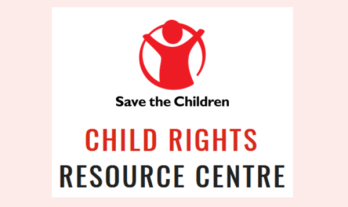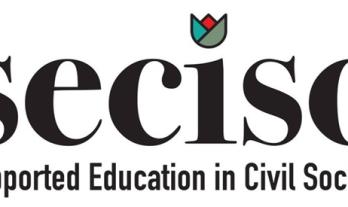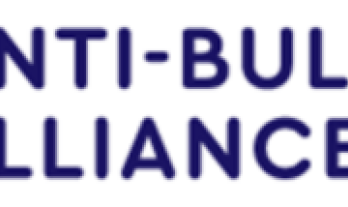1. School governance
Introduction
To adequately address complex issues such as early school leaving, schools need to move beyond temporary and isolated measures to a strategic 'whole school approach'. In a 'whole school approach', schools are seen as collaborative learning environments. The entire school community (school leaders, teaching and non-teaching staff, parents and families), together with external stakeholders, take responsibility to help all learners develop to the best of their abilities.
With a 'whole school approach', all stakeholders aim to raise quality and standards of teaching and learning, The objective of helping learners to fulfil their unique potential is promoted consistently and systematically across all dimensions of school life, i.e.: ethos and the environment; curriculum; teaching, learning and assessment; connections with the community and other external actors, etc. All members of the school community share the vision to create inclusive, learner-centred education and to engage in school improvement. Good planning, monitoring and evaluation of school processes and practices and effective assessment of learning are essential.
Effective leadership and governance are necessary to promote a more cohesive and collaborative culture and ethos in schools and to establish good cooperation with the wider community. School leaders have a key role to play. Strategies for their recruitment, professional development and support are vital. Professional development for aspiring and established school heads should, in particular, stress the importance of collaborative approaches and the importance of families and communities as a resource for the school.
Even in more centralised school systems, it is important that schools have sufficient flexibility and autonomy. School staff are in the best position to identify and respond to the concrete and sometimes complex needs of their learners, to identify appropriate teaching practices and approaches to curriculum implementation.
An example of the Whole School Approach: Ireland
The Department of Education and Skills in Ireland has been promoting the whole school approach through a range of initiatives. These include developing a corporate culture based on shared values and vision, creating a multi-disciplinary approach to support learner needs, and improving engagement of school stakeholders in collective and individual reflection. The initiatives are developed and implemented primarily in partnership with other government sectors and in collaboration with key stakeholders.
- National Strategy: Literacy and Numeracy
- Bullying: Anti-Bullying Procedures in School
- Well-Being of children 0-24 years old: 'Better Outcomes, Brighter Futures' national policy framework
- Social Inclusion: Delivering Equality of Opportunity initiative (DEIS)
Find out more:
- European Commission,A Whole-School Approach to Tackling Early School Leaving: Policy Messages, European Commission, Brussels, 2015.
- Public Health England and Children and Young People’s Mental Health Coalition, Promoting children and young people’s emotional health and wellbeing: A whole school and college approach, PHE Publications, United Kingdom, 2015.
Additional reading:
- OECD, Improving School Leadership, Volume I: Policy and Practice, OECD, Paris 2008.
- OECD, Improving School Leadership: The Toolkit, OECD, Paris, 2008.
- SYNEVA – Quality Assurance through Synergy of Internal and External Evaluation of Schools
Chapters
1.1. School culture and climate
Expand1.2. School planning and monitoring
ExpandSchools wishing to take a 'whole school approach' to address complex issues need to systematically engage in collaborative strategic planning. They will need a process to integrate all their activities into a coherent plan and to monitor and evaluate their progress. The school development/improvement plan serves as a reference document which guides school activities and facilitates monitoring and self-evaluation. As a strategic plan, it should clearly and simply set out the school’s priorities, the main measures it will take to raise standards, resources needed, and the key outcomes and targets it intends to achieve within a specific timeframe.
School planning is not just a task for those in the school community, but should also involve the input and perspectives of all relevant stakeholders in a participatory process focused on the school’s future. Stakeholders include public authorities (as appropriate depending on the national context); parents, families and community groups; external partners, for example, social care and support services; and, of course, members of the school community, including the learners. Openness and transparency of these processes is of utmost importance. In some countries, public authorities may provide guidelines and principles for school planning.
External evaluation may also support school improvement, e.g. by offering advice on best practice and coaching schools in planning and evaluation. The main purpose is not to compare schools in a 'league table', but to highlight successful change and development processes within schools while reflecting the diversity of activities for which schools are responsible and the different contexts in which they operate.
Find out more:
- OECD, Synergies for Better Learning: An International Perspective on Evaluation and Assessment, OECD, Paris, 2013.
- State Institute for School and Media Berlin-Brandenburg, Austrian Federal Ministry for Education, the Arts and Culture, Swiss Conference of Cantonal Ministers of Education, ‘Educational Monitoring, Comparative Studies, and Innovation From evidence-based governance to practice’, OECD/CERI regional seminar for the German-speaking countries in Potsdam (Germany), September 25 to 28, 2007
Additional reading:
- Macbeath, J., et al., Self-evaluation in European Schools: A story of change, Routledge, London and New York, 2000.
1.3. School management
ExpandEffective school leaders promote collaborative cultures. Schools need dedicated, value-led, competent and highly motivated school leaders who can encourage reflective practice and foster dialogue and cooperation among all school actors and with other stakeholders. They ensure a supportive environment for teachers, where teacher-teacher learning, time for feedback and reflection, and networking within and between schools is encouraged. They also play an essential role in providing opportunities for practice-oriented initial teacher education and research-based continuous professional development.
School leaders should be able to share authority by distributing leadership roles within the school. In a 'distributed leadership' model, leadership, teaching and non-teaching staff, learners, as well as parents and families are encouraged to take on leading roles in a particular area of expertise, to assume responsibility and individually or as part of a group, to take initiative. Opportunities for more flexible working relationships are created. This may require developing institutional structures: creating new procedures and working arrangements (such as formal and informal committees, teams, working groups, etc.); organising time and allocating resources to enable collaborative working and testing of innovative ideas etc.
Successful initiatives in Member States feature collaborative leadership structures. This may include giving some members of the staff roles as middle managers/coordinators and as well as allowing flexibility for the formation of teaching teams. Past initiatives have also shown that it is important to have the appropriate selection of support staff (experts, mentors, coaches) who can guide the process of change and support school heads and teachers as appropriate.
In introducing a new school culture, there are some challenges to consider regarding human resources management. This may include, for example, convincing school staff of the benefits of collaboration, creating diverse teams of teaching and non-teaching staff, and ensuring sustainability of collaborative work.
Find out more:
- Network on School Leadership (EPNoSL): online platform with case studies on good practices in the field of school leadership policy in Europe
- OECD (2014), “Chapter 3: School Leadership” in The OECD Teaching and Learning International Survey (TALIS) – 2013 Results, OECD, Paris, 2014, pp. 55-83.
1.4. Cooperation within education systems
ExpandCooperation within education systems can take different forms – from networking to more formalised clustering of schools. 'Networking' includes teachers and other school staff coming together to discuss ideas and share good practices on certain topics, or reciprocal sharing of resources to benefit the individual schools and communities. 'Clustering' is usually a more formal grouping of a number of schools in the same city or local region, with joint vision and development processes as well as decision-making. Representatives from schools come together to share resources or work on larger initiatives together that contribute to schools and the region as a whole.
Based on successful initiatives in Members States, this way of working has been shown to have excellent benefits for:
- easing transitions between educational levels (e.g. from early childhood education and care to primary, from primary to secondary, including vocational education and training);
- the continuity of learner support across schools/region and throughout a pupil's education;
- the provision of learner support (e.g. multidisciplinary teams able to take a variety of approaches but in a coordinated way);
- parental involvement; and,
- teacher training and, in particular, continuous professional development of teachers (CPD).
All of the above can help to prevent early school leaving.
Experience from Member States shows that cooperation among schools is easier to achieve if it involves and is supported by local and national authorities, as appropriate, according to national circumstances.
Even in centralised systems, local authorities can provide additional support to help deal with family-related and social problems that result in young people leaving school early, for example through outreach efforts to target learners outside of the school environment. National authorities can assist by encouraging and enabling this regional/local cooperation and by allocating funding for initiatives. National and local education departments are also well placed to liaise with other government departments and services to ensure alignment of policies which address early school leaving.
An example of clustering of schools: Portugal
In Portugal, a major reorganisation of the school system aimed to address geographical discrepancies both in rural areas (where many schools are small and isolated) and in towns (were schools are often overcrowded). The reorganisation was to improve upon results of PISA 2000 and to address issues that contribute to high levels of pupil drop-out. The re-organisation led to the introduction of a network of ‘school clusters’ that bring together several schools (of different levels – from early childhood education and care to secondary) in a single educational project and under one main school leader. A typical cluster may consist of 5 to 10 pre-school units and primary schools feeding into lower secondary schools and a single higher secondary school. There are currently 811 clusters and non-group secondary schools in operation.
European Commission, Working Group Schools Policy, Early school leaving Country focus workshop: School governance and collaborative practices, Portugal, 11-14 November 2014.
Find out more:
- Bennet, B., A. Daughtrey, and A. Wieder, Collaboration: Closing the Effective Teaching Gap, Center for Teaching Quality, Carrboro, North Carolina, 2009.
- MacNeil, J., School- and Cluster-based Teacher Professional Development: Bringing Teacher Learning to the Schools, Working Paper #1, US AID, Washington, D.C., 2004.
Additional reading:
- Lock, A., Clustering together to advance school improvement: working together in peer support with an external colleague: Full Report, National College for Leadership of Schools and Children’s Services, Nottingham, UK, 2011.







